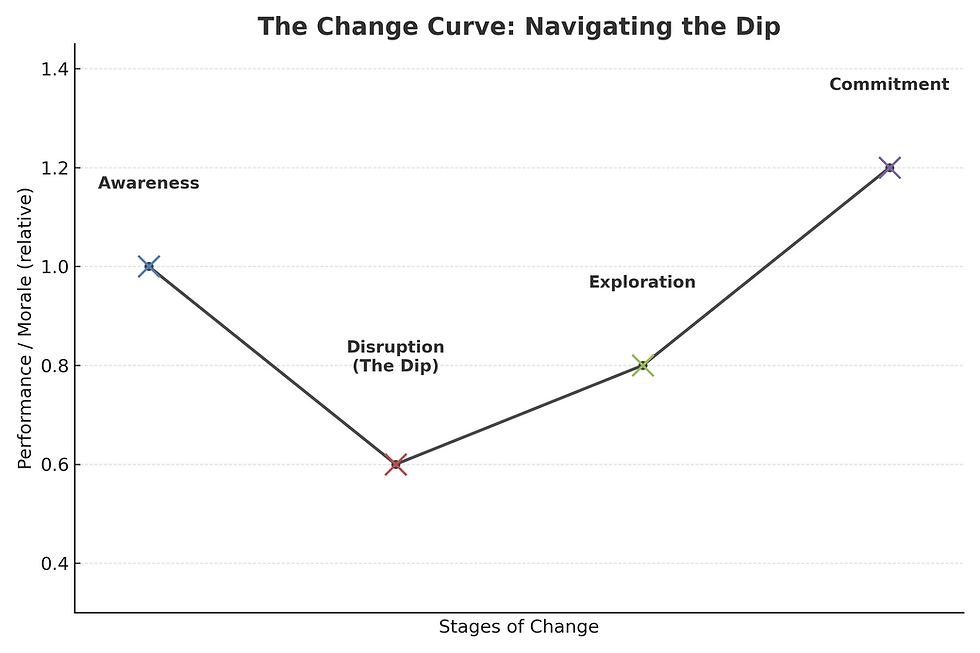The Importance of Nonprofit Boards Steering Clear of HR Decisions
- Amber Parker
- Sep 17, 2024
- 3 min read
In the nonprofit world, the relationship between the board of directors and the organization's leadership team is crucial for long-term success. One of the most misunderstood aspects of this relationship is where the line should be drawn when it comes to human resources decisions, especially in areas like hiring and firing staff. While boards play an essential role in governance, strategy, and oversight, getting involved in HR matters can blur responsibilities, weaken organizational structure, and ultimately impede progress.
Here's why it’s important for nonprofit boards to maintain a clear separation from day-to-day human resources functions.
1. Defining Roles and Responsibilities
The board's primary role is governance, which includes setting strategic direction, ensuring financial oversight, and supporting the mission. On the other hand, the executive director or CEO is responsible for the organization’s daily operations, which includes staff management. This distinction is critical.
When boards step into HR functions like hiring or firing staff members, they unintentionally undermine the authority of the executive director, potentially disrupting the chain of command. This creates confusion among staff and can lead to inefficiencies and a lack of accountability.
2. Protecting Organizational Integrity
HR decisions are nuanced and often require detailed knowledge of an organization's culture, staff performance, and the legal framework surrounding employment practices. The executive director and their leadership team are equipped with this understanding, as they are more immersed in the day-to-day operations.
Board members, while well-meaning, typically lack the context and depth of knowledge required to make informed HR decisions. By leaving these responsibilities to the executive team, boards help protect the organization from potential liabilities, such as wrongful termination claims or legal issues related to hiring practices.
3. Maintaining a Healthy Relationship Between the Board and Leadership
A collaborative and respectful relationship between the board and the executive director is essential for the health of any nonprofit. When boards interfere in HR matters, it can strain this relationship. The executive director may feel micromanaged or undermined, leading to tension that can disrupt the organization's overall effectiveness.
Boards should focus on providing guidance and support to the executive director while allowing them to manage the staff. This ensures that the leadership team has the autonomy to make decisions that align with the organization’s goals and culture.
4. Ensuring Organizational Stability and Morale
When the board gets involved in hiring or firing decisions, it can create uncertainty among staff. Employees may feel that their job security is being evaluated by individuals unfamiliar with their work or contribution. This can lower morale, lead to distrust, and even cause high turnover. By allowing the executive team to handle these matters, the organization maintains a sense of stability and ensures that staff evaluations are fair and consistent.
5. The Board’s Role in Executive Leadership Transitions
While boards should avoid most HR decisions, there is one crucial exception: the hiring and evaluation of the executive director or CEO. The Board is responsible for ensuring that the organization has strong, capable leadership at its helm. This includes being involved in hiring a new executive director, conducting performance evaluations, and, if necessary, making the difficult decision to terminate that leader.
However, even in this case, the board’s involvement should be well-defined and collaborative. Clear processes should be in place for executive searches and evaluations to ensure fairness and transparency.
Conclusion
Nonprofit boards have a vital role in guiding the organization toward achieving its mission, but that role should not extend into daily HR operations. By focusing on governance and strategy rather than staff management, boards empower the leadership team to make informed, effective decisions that drive the organization forward. When each party understands and respects their responsibilities, the nonprofit is set up for sustainable success and strong organizational health.
By maintaining these boundaries, nonprofit boards can support the leadership team in creating a thriving, mission-driven organization that makes a lasting impact.




Comments